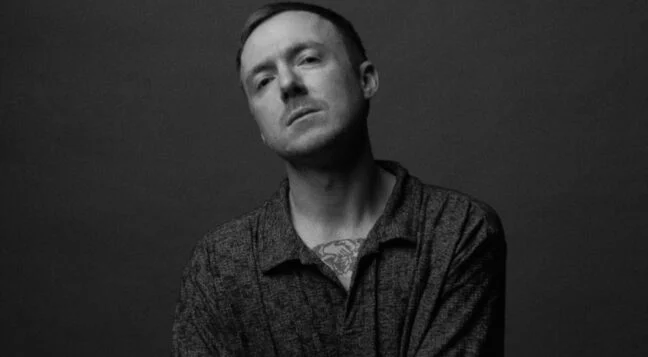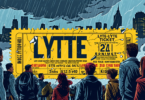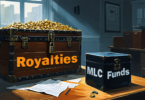MBW’s World’s Greatest Songwriters series celebrates the pop composers behind the globe’s biggest hits. This time, we talk to Grammy-nominee Henry Allen, who is published by Kobalt. He plays a crucial role in the creative team behind LA band LANY and singer and songwriter Sasha Sloan, while also writing for global pop artists including The Weeknd, Beyoncé, Maroon 5, Justin Bieber and Major Lazer. World’s Greatest Songwriters is supported by AMRA – the global digital music collection society which strives to maximize value for songwriters and publishers in the digital age.
In the space of eight years, Henry Allen has gone from ‘the guitar kid’ who Diplo took under his wing to writing for artists including The Weeknd, Beyoncé, Maroon 5 and Justin Bieber.
Mashene Music Group – Info | Corporate Royalty Sharing | Social @ LinkTree
He’s a Grammy-nominee thanks to his contribution to Beyoncé’s All Night and has helped shape the careers of LA pop outfit LANY and upcoming singer and songwriter Sasha Sloan (who also happens to be his girlfriend) as executive producer.
Tracks Allen has contributed to include Cold Water by Major Lazer, Justin Bieber and MØ, which hit No.2 on the Billboard Hot 100, Nothing Without You by The Weeknd, Help Me Out by Maroon 5 and Julia Michaels and Lonely by Diplo and The Jonas Brothers.
Projects he’s working on now include his own artist album under the moniker King Henry, the songs for which will be rolled out over the next eight months (It’s Not U landed via AWAL on Friday November 5), Sloan’s second album, Nashville songwriter Nicolle Galyon’s album, and he’s writing with artists including Demi Lovato, Ryan Hurd and Laci Kaye Booth.
Allen also continues to work closely with Diplo and is organising and conducting sessions for the second instalment of his country project, Snake Oil.
His journey into music began while studying classical guitar at college, where he fell in love with electronic music production. On the course, Allen started to meet creatives working in LA, which, through a series of links, is how he was introduced to Diplo.
“He let me start helping with projects, organising hard drives and files, and he doesn’t play any instruments really so I just became the ‘guitar kid’,” Allen remembers.
He started giving Diplo the beats he was making, one of which went onto become All Night.
Once that happened, the idea of a career in music became viable and Allen signed a publishing deal with Kobalt.
His production work evolved into songwriting over the years thanks in part to “getting away from the computer” and working with talents like MØ and Sloan, a move that’s been accelerated by relocating to Nashville.
Here, we chat to Allen about working with Diplo, lessons learned in his career, his creative process, the catalog sale gold rush and much more besides.
As you’ve said, meeting Diplo was key to getting your career started. Were there any important lessons that he taught you either about the business or the creative process?
He taught me about minimalism in pop production and songwriting. I was an over-thinker and if I was trying to work on something, would put down 100 tracks. He was always like, ‘Okay, mute this, mute this and mute this’. Sometimes, less is more.
For the business side of things, I learned so much from the way he would go into a room to work.
“Diplo taught me about minimalism in pop production and songwriting.”
Whether he was working with Migos or someone like MØ, he has a way of connecting with someone to break the ice of a session. So many times, we have to go on these blind dates with people and make a song and I think it’s important to treat it more like you’re just meeting someone, rather than for the specific purpose of making music.
What’s your songwriting process? Where do you find inspiration?
Life is what inspires me. Most of the time, you’re writing from personal experience but there’s also a lot of times when you’re writing from other people’s experiences.
I could sit and write a song about losing someone but it wasn’t me, it was my friend. Or, I’ll hear something in a movie or a TV show, or have conversation, and find a really cool lyric or a song title and write it down. When you go into a session a month later, you can bring it up.
When you’re with an artist, you always want to let them guide the song, unless they don’t have any ideas. I feel like the best songs come from a real experience.
Do you have a process or structure when you sit down to write or do you find it’s best to have total freedom in the way that a song comes together?
I’m always on the side of total freedom. My approach to writing songs has always been just saying something over music and not worrying about symmetry and syllables lining up, but there’s a whole science and school of songwriting thought that’s, ‘Oh, the syllables need to match, we started this verse on the downbeat, we should start the pre [chorus] on the downbeat’.
“There’s a whole science of songwriting thought but I think mostly, if it feels good, it’s good.”
That old approach sometimes annoys me, because I’m like, if it feels right, it feels right, but there’s a middle ground. And depending on who you’re writing with, everyone has a different approach. But I think mostly if it feels good, it’s good.
Do you have any strategies for dealing with periods of creative block?
In the past year and a half, there was a lot of creative block and that was hard to pass for a lot of people because I think a big strategy for getting through it is going out and being with people, experiencing the world and watching live music.
Luckily, we moved to Nashville mid-Covid and to a place where we have two acres of forest and we can walk to this nature reserve where there’s deer, animals and a lake. Getting outside is important, and it sounds cliche, but nature is great.
You’ve had a lot of success as a songwriter and a producer but how about memorable failures and lessons learned as a result?
In music, I don’t think there are failures, we just have misses. I believe in dreaming big, but I think it’s really important to manage expectations in this world. When you’re new and excited about songwriting, it’s really easy to get your hopes high and think a big opportunity is going to happen and then it doesn’t happen.
You may feel like, ‘Oh, I failed, this was supposed to happen and it didn’t’, but I’ve learned that nothing is going to happen until it happens.
“I believe in dreaming big but I think it’s really important to manage expectations in this world. Some things aren’t meant to be and that’s okay.”
So it’s just about staying inspired and driven for the biggest and best things you can do in music, create the best things you can create, but understanding that a lot of it’s just luck and there’s really no right or wrong way. Some things aren’t meant to be and that’s okay. You’ve just got to hang on and ride it out.
There seems to be a lot of money in selling songwriting catalogs right now. Would you ever be tempted to sell yours?
I don’t know enough about the future. Take Diplo, for example, we were asking him why he hadn’t yet sold his catalog and he was like, ‘I have no reason to sell it, I’m in it for the long-term investment and who knows what’s going to happen with streaming and all these other countries like China or India, where they don’t have real systems yet to be collecting royalties in the way that we do in Europe and America.
“If I had a company that I was trying to start or something that I needed capital for, I’d sell [my catalog], but for now, I’m just going to sit and keep making music.”
‘Why give up all these lifelong copyrights if I don’t yet know if they’re going to make a lot more money in these other countries once we get systems in place?’ That struck a chord with me. If I had a company that I was trying to start or something that I needed capital for, I’d sell it, but for now, I’m just going to sit and keep making music.
In Nashville, a lot of people I know here have been selling catalogs for years, where I guess it’s more common to sell, sell again, sell again and sell again. But I also heard a funny story recently. A songwriter I was working with had 25% of one of the biggest country pop songs of the past five years and they’d included it in a catalog sale before it had been released and been a hit. Especially in the world of TikTok, when 10-year-old songs are becoming viral hits, you just never know when a song could explode and I think there’s something to that.
What would you change about the music industry and why?
There’s a lot of politics that I think are ugly and unfair but I also accept that this is the industry I’m in and it’s always going to throw curveballs. I’m going to wake up in six months and TikTok is going to be gone and labels are going to panic and pivot and figure out what to do next. In the eight years I’ve been in it, the industry has already changed so much and I’m just holding on for the ride.
“I wish we could focus more on building long-term artists the traditional way but it’s a TikTok world that we live in it right now.”
One specific thing I’d like to change though is throwing money at viral moments which I think is proving to not work more than it does. I wish we could focus more on building long-term artists the traditional way but it’s a TikTok world that we live in right now.
What advice would you give to a young songwriter who is looking to start their career in music today?
It sounds generic to say, but just keep making music. So much of it is right place, right time, right introduction to the right person. It’s totally random. So don’t beat yourself up if you’re not getting placements and opportunities and someone doesn’t listen to your song. If you’re making good music, eventually, things will fall into place.
“Don’t beat yourself up if you’re not getting placements and opportunities and someone doesn’t listen to your song. If you’re making good music, eventually, things will fall into place.”
Also, there’s a weird stigma about having to subsidise income other ways. There were times where I was teaching zero to four-year-old babies music and dance with their moms in Newport Beach, California, while also wanting to be a producer, and it just took timing and patience.
Reach out to people because you’d be surprised how many will respond to a direct message or email. I’ve gotten cold emails from producers who ended up becoming part of my team. Be proactive and don’t be scared to annoy people because if you’re good, eventually, they will respond.
Source: Business WorldWide







